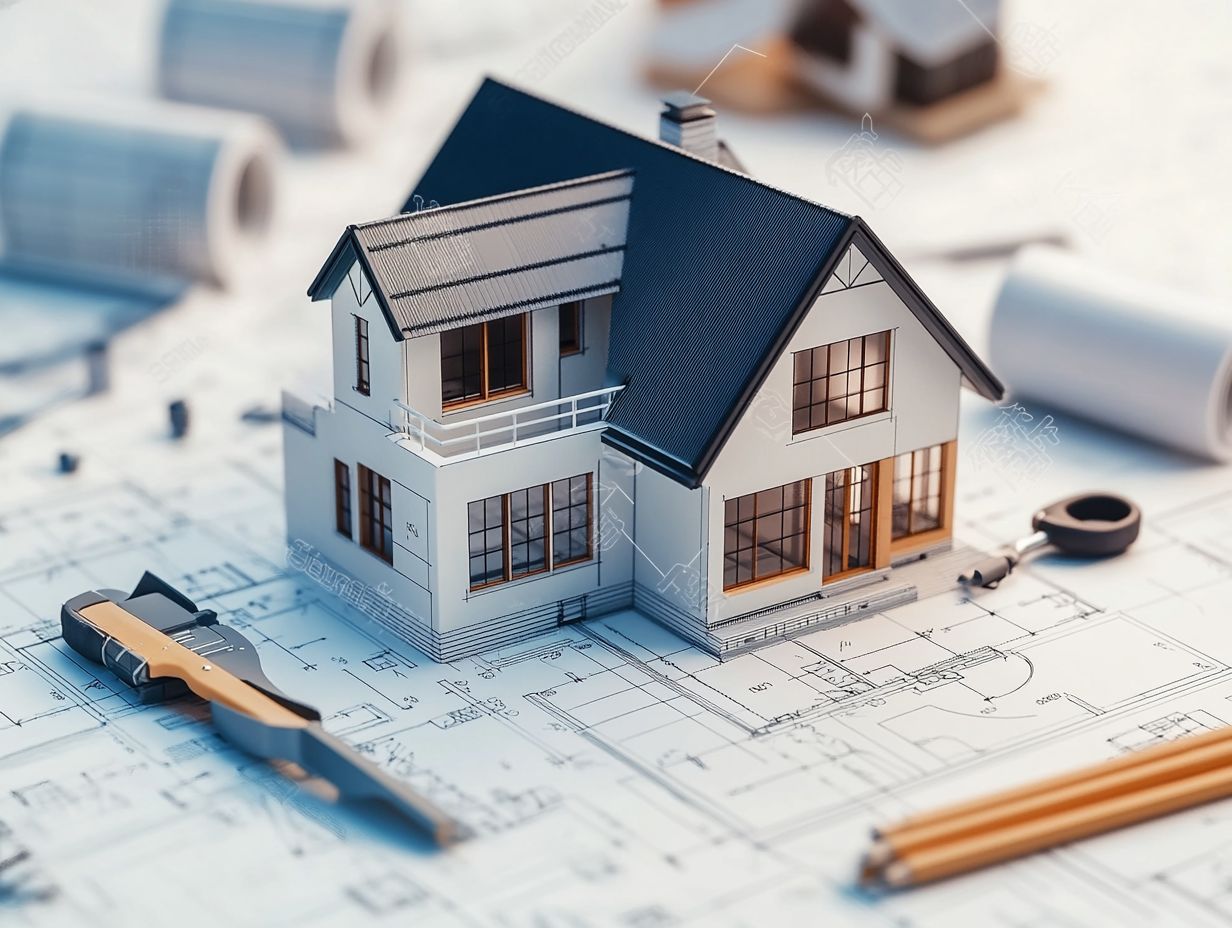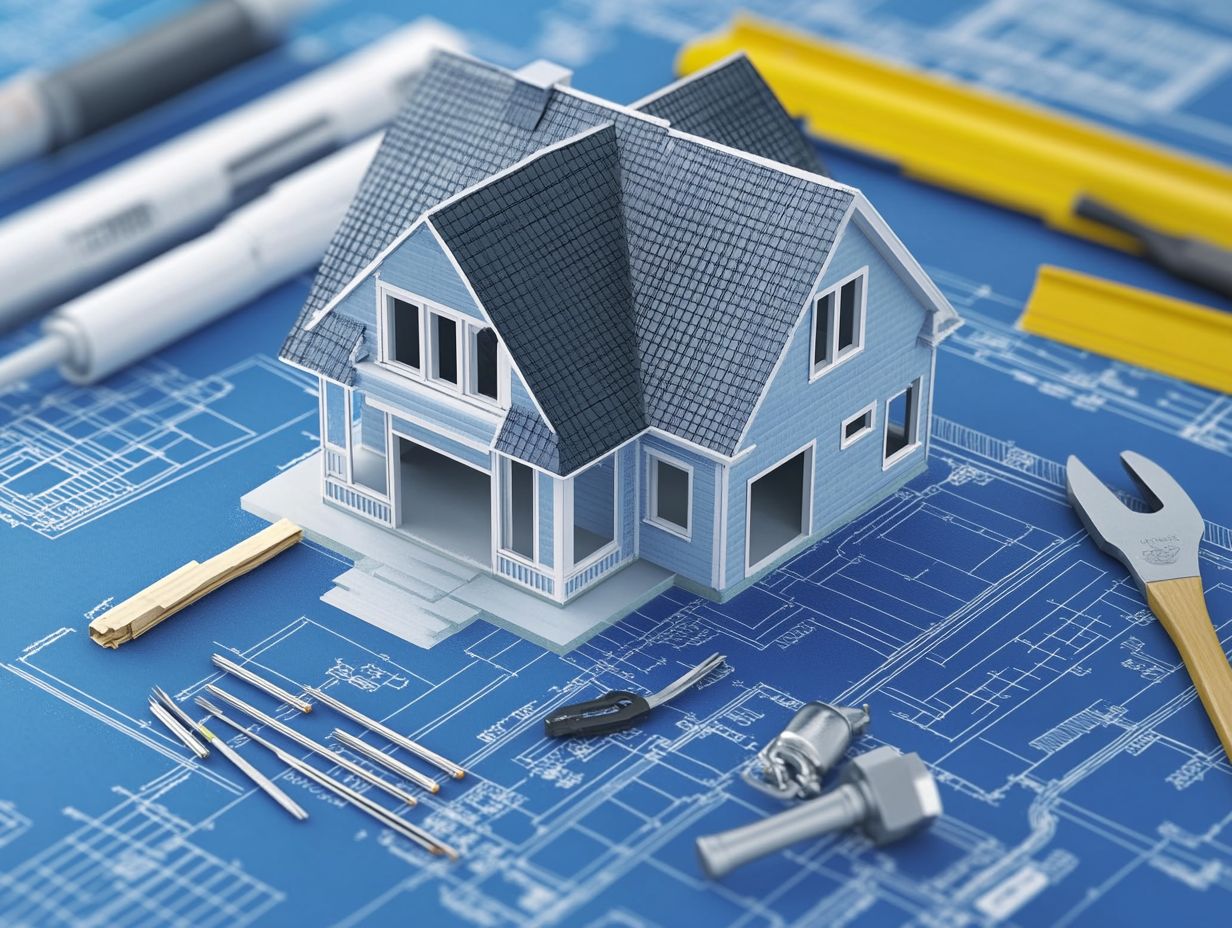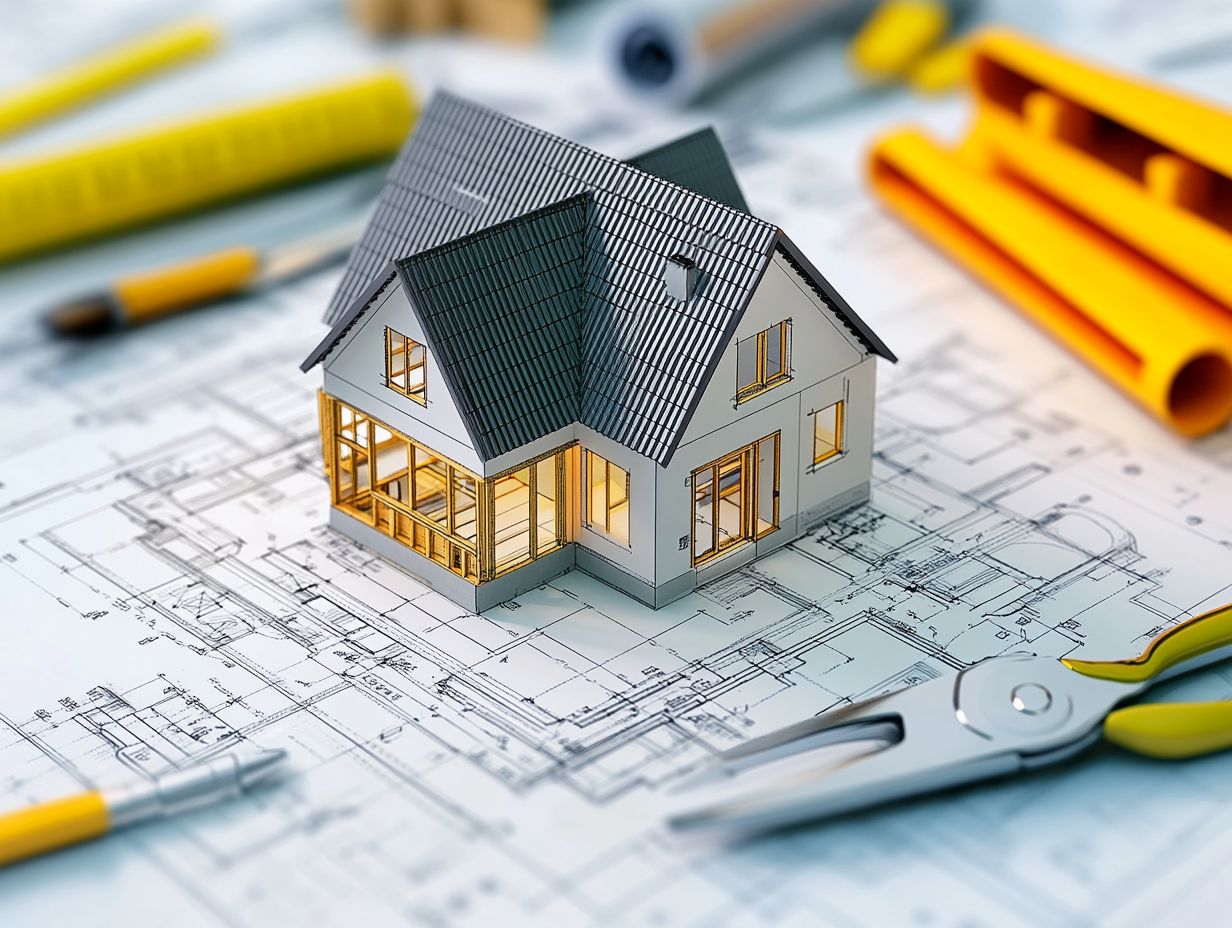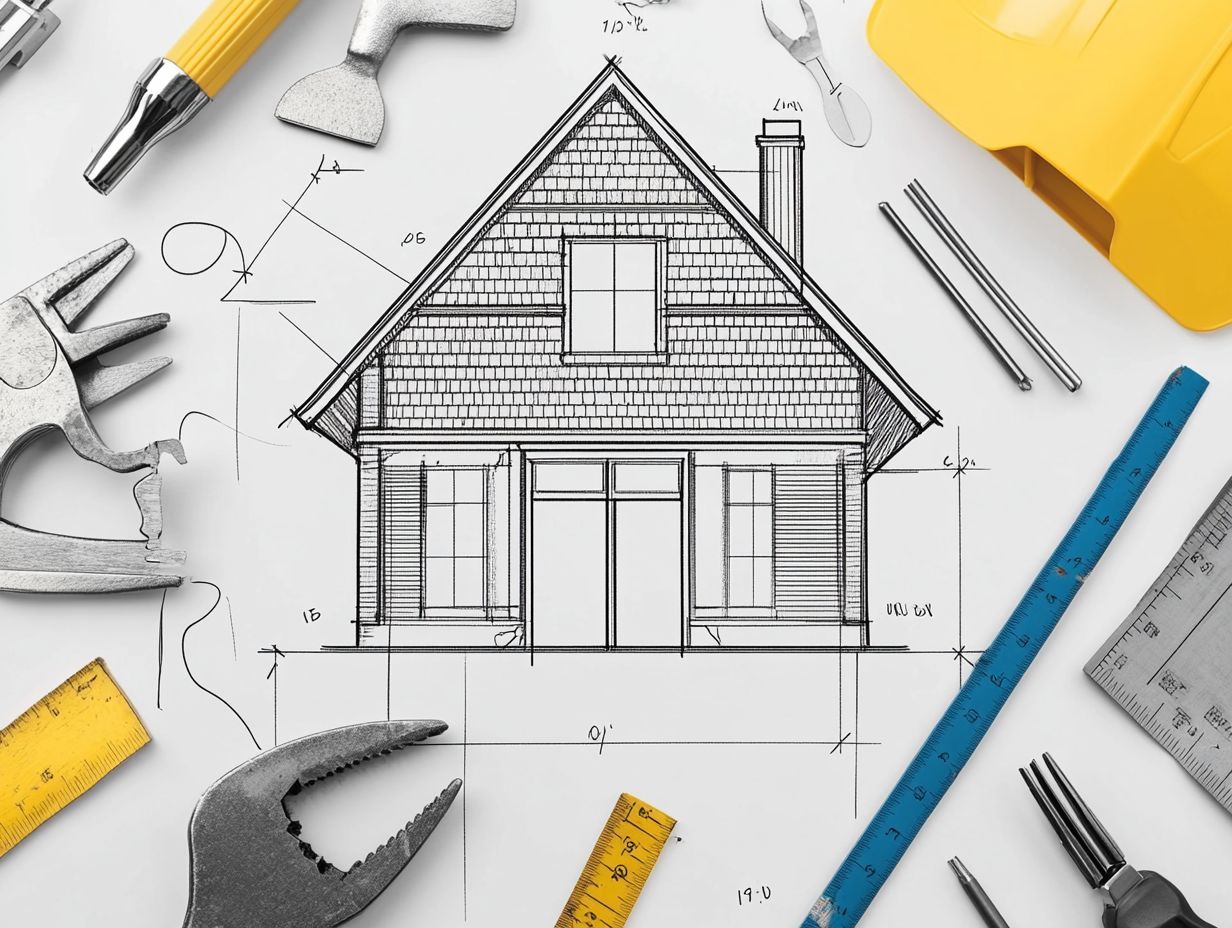How to Ensure Proper Coverage for Home Additions
When you re planning a home addition, it s essential to understand how this decision will affect your insurance coverage. Many homeowners are surprised to find that their current policies may not fully protect new structures or renovations.
This guide clarifies what home insurance typically covers, the factors influencing coverage for additions, and options for extending your policy. You ll find essential steps to take before and during construction, along with common pitfalls to avoid.
Protect your investments and enjoy peace of mind during renovations!
Contents
- Key Takeaways:
- Understanding Home Insurance Coverage
- Factors Affecting Coverage for Home Additions
- Options for Extending Coverage
- Steps to Take Before and During Home Addition
- Common Mistakes to Avoid
- Frequently Asked Questions
- What types of insurance coverage should I consider for a home addition?
- Do I need to notify my insurance company before starting a home addition?
- Will my insurance premium increase after adding onto my home?
- Are there any risks associated with not updating my insurance after a home addition?
- How can I ensure proper coverage for my home addition without overspending on insurance?
- What steps can I take to prevent insurance issues during a home addition project?
Key Takeaways:

Know what your home insurance policy covers especially for additions! Factors like size, location, and permits can change your coverage. Always inform your insurance company of any changes to keep your coverage strong.
Understanding Home Insurance Coverage
Understanding home insurance coverage is crucial for homeowners, particularly when protecting your investment during renovations or improvements.
Your homeowners insurance usually includes dwelling coverage for the structure, personal property coverage for your belongings, and liability insurance that protects you from financial losses if someone gets hurt on your property.
By familiarizing yourself with coverage limits and exclusions, you can ensure full protection, especially when tackling a renovation project or making significant modifications to your property.
What is Covered and What is Not
Homeowners insurance covers various risks, but knowing what s included and what s not is vital as you plan renovations or improvements.
These policies generally feature dwelling coverage, which protects your home’s structure, and personal property coverage that secures your belongings inside.
Common exclusions can complicate matters, particularly during renovations. For instance, damages from maintenance neglect or poor construction may not be covered.
If you’re investing in home upgrades, regularly reviewing your insurance policy is essential to ensure adequate coverage and avoid unexpected financial setbacks during the renovation process.
Factors Affecting Coverage for Home Additions
Understanding the factors that affect coverage for home additions is essential, as they can significantly influence the insurance coverage you receive and associated costs. For guidance, check out this article on how to ensure your home is properly insured.
When planning a renovation project whether a kitchen remodel or a bathroom addition it s vital to evaluate how these changes might impact your existing policy.
Factors like the size and location of the addition, along with the types of construction materials used, can significantly alter your coverage limits and premiums.
Size, Location, and Type of Addition
The size, location, and type of addition can greatly influence your homeowners insurance coverage during a renovation project. Understanding these factors before diving in is essential.
If you’re considering a larger addition, such as an expansive sunroom or extra bedrooms, you may need to increase your dwelling coverage to protect the newly expanded structure adequately. This change can lead to a rise in your premium, as insurers reassess risk levels based on the scale of your property.
Location is another critical aspect; local building codes may require specific materials and designs that could impact your insurance expectations. Adding features like a garage or swimming pool often necessitates unique policies or endorsements due to different liabilities.
By understanding these nuances, you can ensure comprehensive coverage while enhancing your property.
Permits and Building Codes

Obtaining building permits and following local codes is crucial for homeowners planning renovations. Ignoring these can jeopardize your insurance coverage.
Compliance ensures your renovations meet safety standards. It also provides legal protection against potential liabilities.
Without permits, insurance companies may adjust your coverage or deny claims related to your renovations. This can lead to higher premiums if violations are discovered.
By securing the necessary permits, you protect your investment and gain peace of mind. You ll know your renovations are recognized and your property is insured.
Options for Extending Coverage
Homeowners can enhance their insurance coverage during renovations through various options. These include tailored coverage like builder s risk insurance or liability insurance.
These options not only boost your protection but also provide essential peace of mind during your home enhancements.
Insurance Add-Ons
Add-ons to your homeowner’s insurance can offer specialized coverage that meets your unique needs during renovations. Customizing your policy based on your situation is essential.
For example, consider add-ons that cover extra costs tied to renovations. One option covers renovation expenses, preventing unexpected costs from derailing your project.
You can also get coverage for new materials, protecting your purchases from theft or damage during renovations. This ensures your investments are well-protected.
Additional Policies
Consider looking into builder s risk insurance and contractor insurance for added protection during renovations. Builder’s risk insurance covers risks like theft and vandalism that may occur during significant changes.
This insurance prevents you from facing financial burdens if something goes wrong. Verify that your contractor has adequate insurance to protect against liability and other risks.
Knowing your project is shielded from unexpected mishaps is crucial for peace of mind during renovations.
Steps to Take Before and During Home Addition
Taking the right steps before and during a home addition can streamline your renovation process. Ensure you have sufficient insurance coverage for your improvements.
Notify your insurance company about planned renovations. This communication can influence your coverage and may require premium adjustments.
Document all changes and expenses throughout your renovation. This creates a clear record for your insurance needs and future reference.
Notifying Your Insurance Company

Notifying your insurance company about upcoming home improvements is an essential step to maintain the right coverage for your property. Share crucial details like the project s scope, estimated costs, and potential changes in your property’s value.
This proactive communication prompts your insurance company to adjust your policy, ensuring it accurately reflects the enhanced worth of your home and protects you against potential liabilities.
Being transparent is vital; failing to inform your insurer could complicate claims later. View this communication not merely as a formality but as a necessary safeguard to protect your investment.
Documenting Changes and Expenses
Documenting changes and expenses during your renovation project equips you with essential information for insurance claims and tax purposes. Meticulously record every detail from before-and-after photos to organizing receipts and contracts to create a comprehensive timeline of the renovation.
This effort establishes a clear record of what you ve accomplished and serves as an invaluable resource should unforeseen incidents arise. If damages occur or items go missing, having a thorough database of evidence boosts your chances of successful claims with your insurance company.
It also helps you assess your return on investment, ensuring that every dollar spent is accounted for and guiding you toward informed financial decisions in the future.
Common Mistakes to Avoid
Avoiding common mistakes during the home renovation process can safeguard you from significant financial pitfalls related to insurance coverage.
One prevalent error is neglecting to update your coverage limits after making modifications or improvements to your home. This oversight could leave you exposed in the event of property damage.
Moreover, underinsuring your additions can result in insufficient funds for necessary repairs or replacements, leading to unexpected costs that could derail your renovation project.
Failure to Update Coverage
One of the most common pitfalls homeowners encounter is neglecting to update the coverage limits in their homeowner policy after significant renovations. Don’t let this mistake cost you; it could lead to serious financial trouble!
Regularly reviewing your policies ensures that increases in your home’s value due to renovations are accurately reflected. Protect yourself against the risks of underinsurance by adjusting your coverage.
Recognizing the importance of aligning your insurance policies with your property’s current condition can be the difference between receiving adequate compensation and facing financial loss during unexpected events.
Underinsuring the Addition
Underinsuring your addition during a renovation can spell financial disaster if unexpected damages occur. When you fail to accurately assess renovation costs, you risk the painful realization that your insurance payout won’t cover the damage.
Imagine neglecting to account for rising costs of materials and labor; you might find yourself underinsured when disaster strikes, resulting in significant out-of-pocket expenses just to restore your property.
Common exclusions like flood or earthquake coverage can leave you vulnerable, especially if your home is in a high-risk area.
To navigate these complexities effectively, consult with an insurance professional and conduct thorough market research on renovation costs. Ensure you have adequate and comprehensive coverage.
Check out this video for more tips on insurance coverage during renovations.
Frequently Asked Questions

Take a moment now to review your insurance policy and ensure you re fully covered before starting your renovation!
What types of insurance coverage should I consider for a home addition?
When planning a home addition, review your current homeowner’s insurance policy. Consider adding coverage for the new structure and any changes to your home. This may include coverage for the building, liability coverage, and increased personal property coverage.
Do I need to notify my insurance company before starting a home addition?
Yes, you ll want to inform your insurance company before beginning any home addition projects. They can advise you on necessary changes to your policy and ensure you have proper coverage during construction and once the addition is complete.
Yes, it usually increases. Adding square footage and increasing your home’s value will likely result in a higher insurance premium.
However, update your policy to ensure adequate coverage for the new space and changes to your property.
Are there any risks associated with not updating my insurance after a home addition?
Yes, failing to update your insurance policy after a home addition could lead to costly financial losses if damage or loss occurs. Your insurance may not cover the full cost of repairs or replacement without adequate coverage.
How can I ensure proper coverage for my home addition without overspending on insurance?
Work closely with your insurance agent to determine the right coverage for your home addition. They can help you balance adequate coverage with a reasonable premium.
Shop around! Compare quotes from different insurers to find the best deal.
What steps can I take to prevent insurance issues during a home addition project?
Aside from updating your insurance policy, minimize risk during construction. Hire licensed and insured contractors, obtain necessary permits, and follow safety protocols.
Keep detailed records and document the addition to help in the event of a claim.





